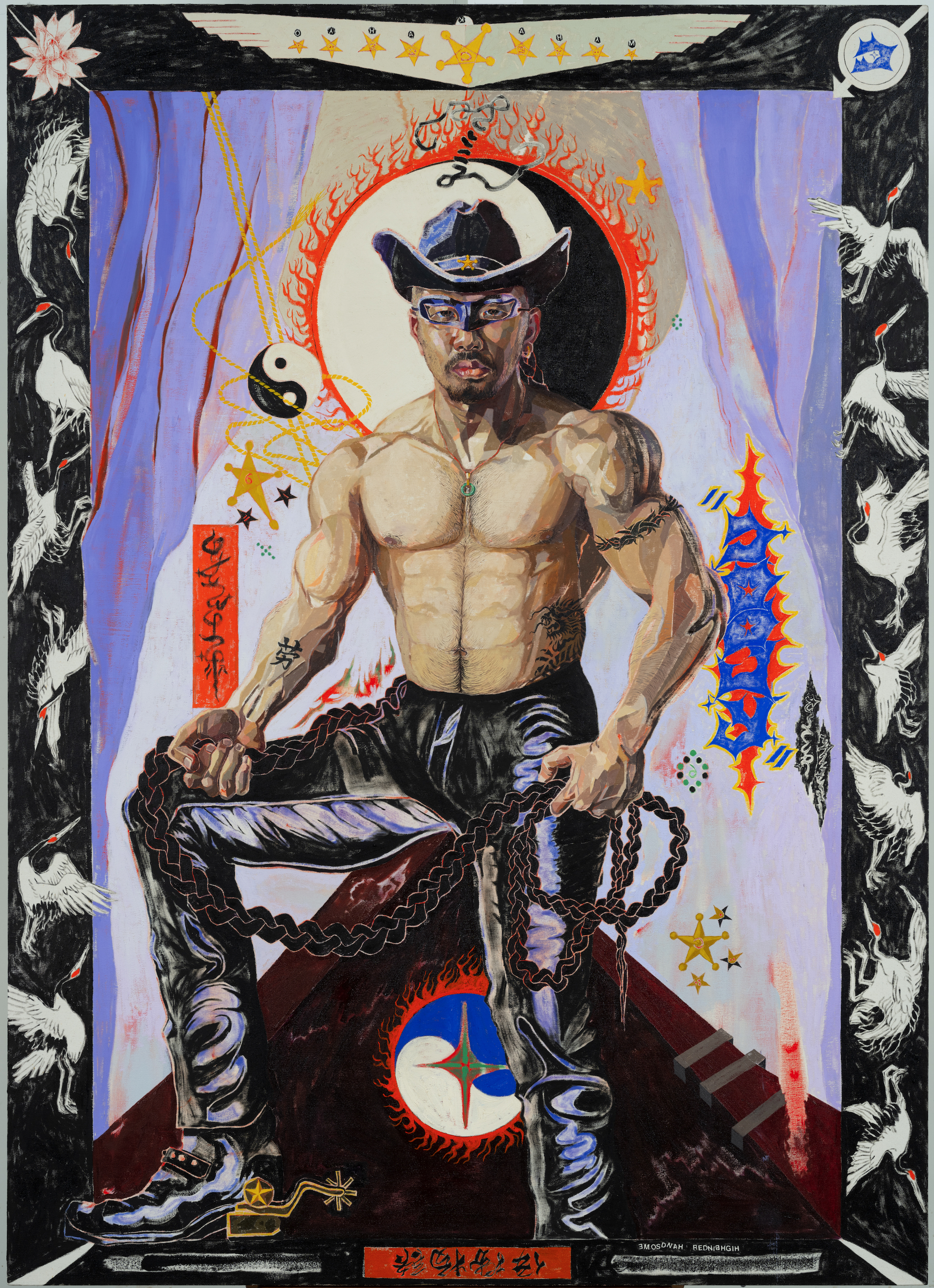
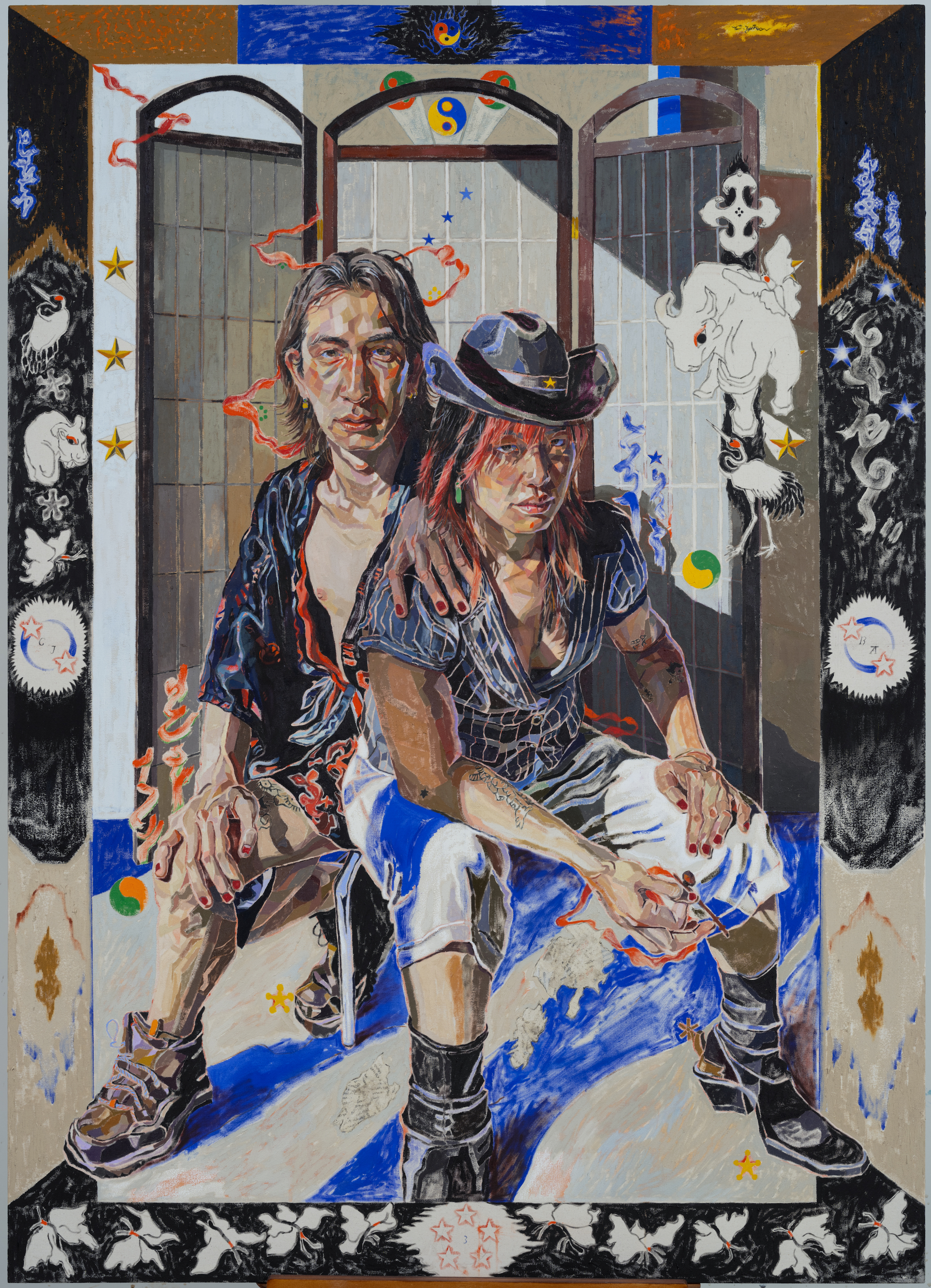
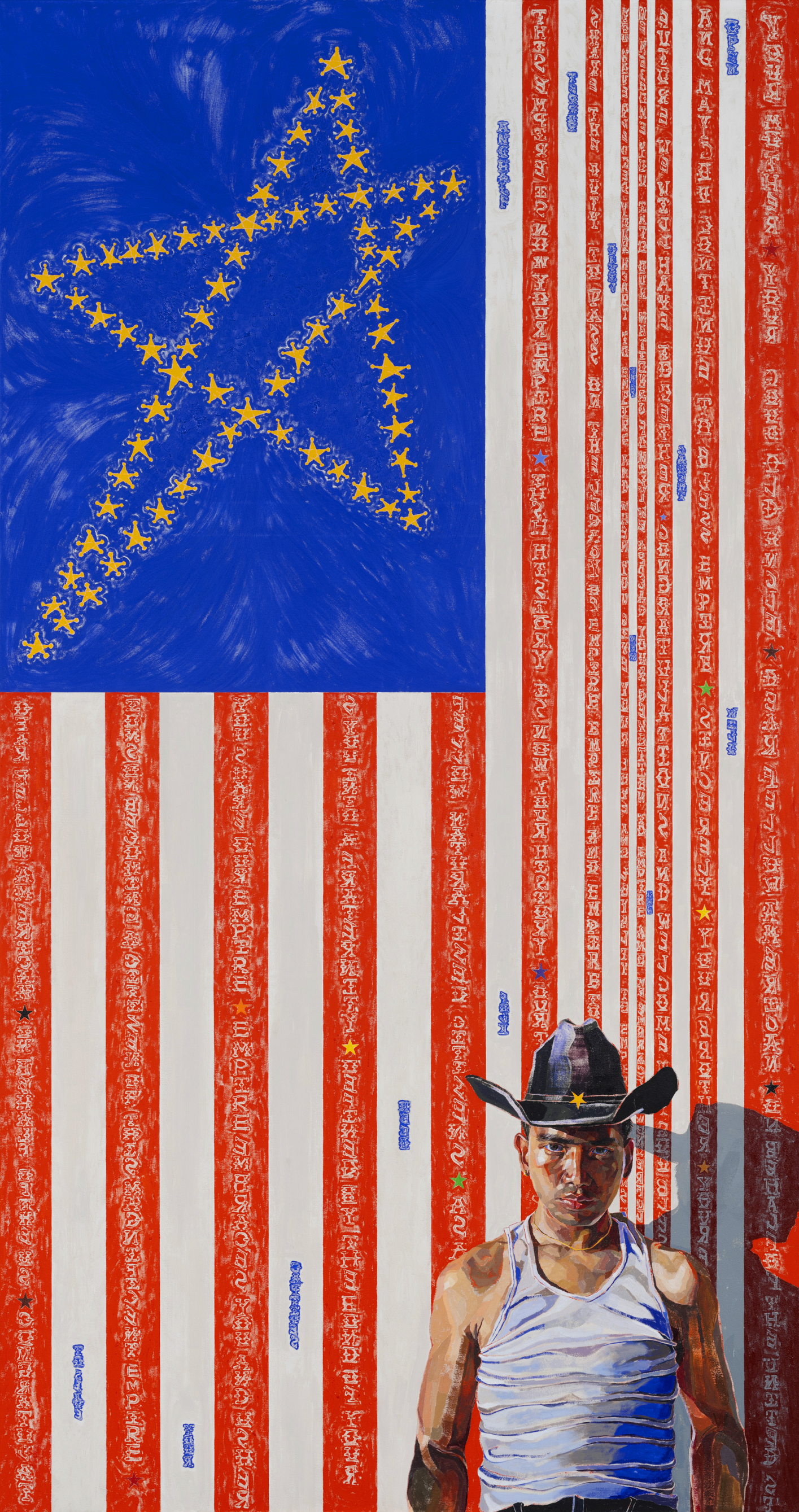
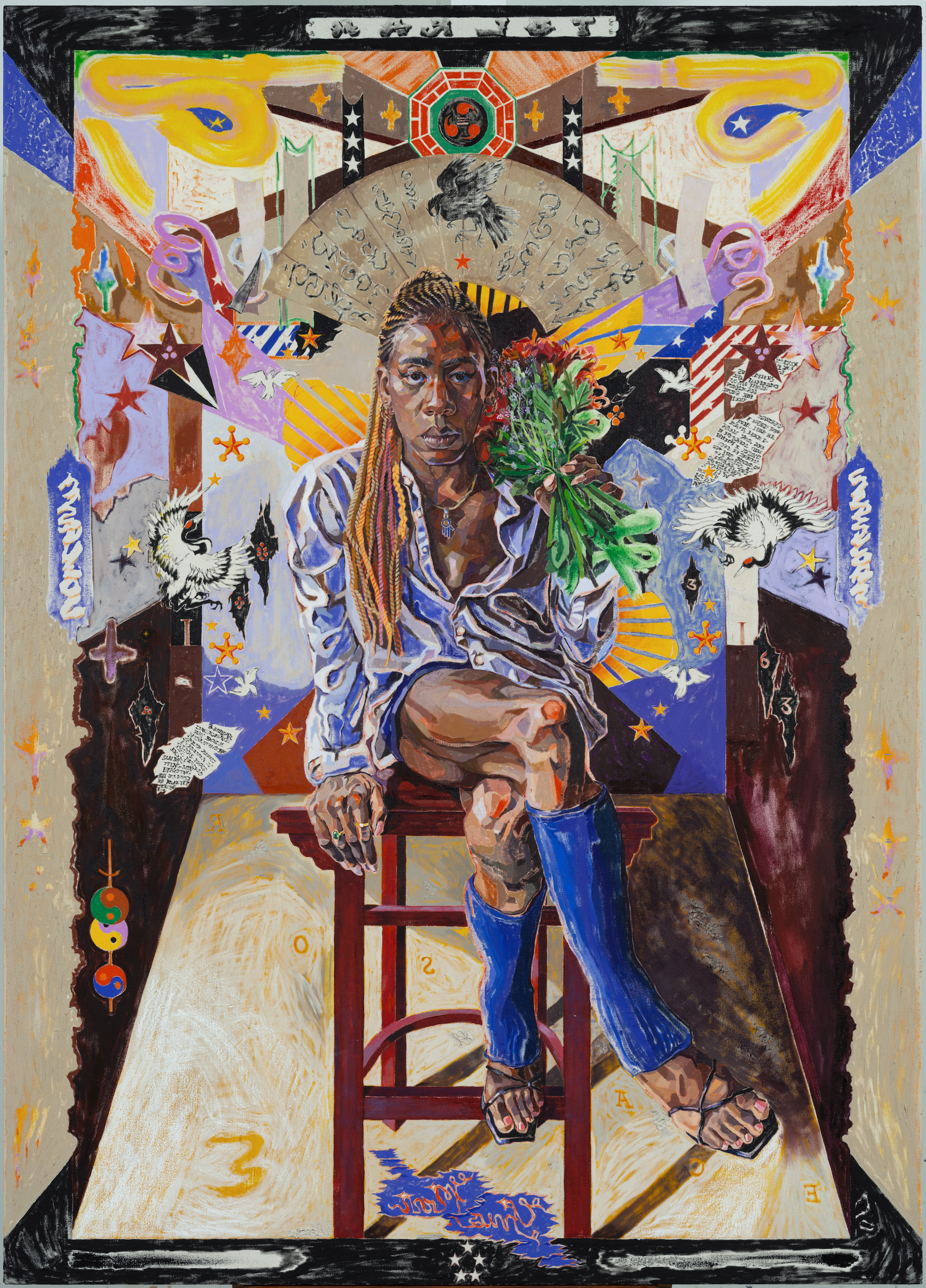

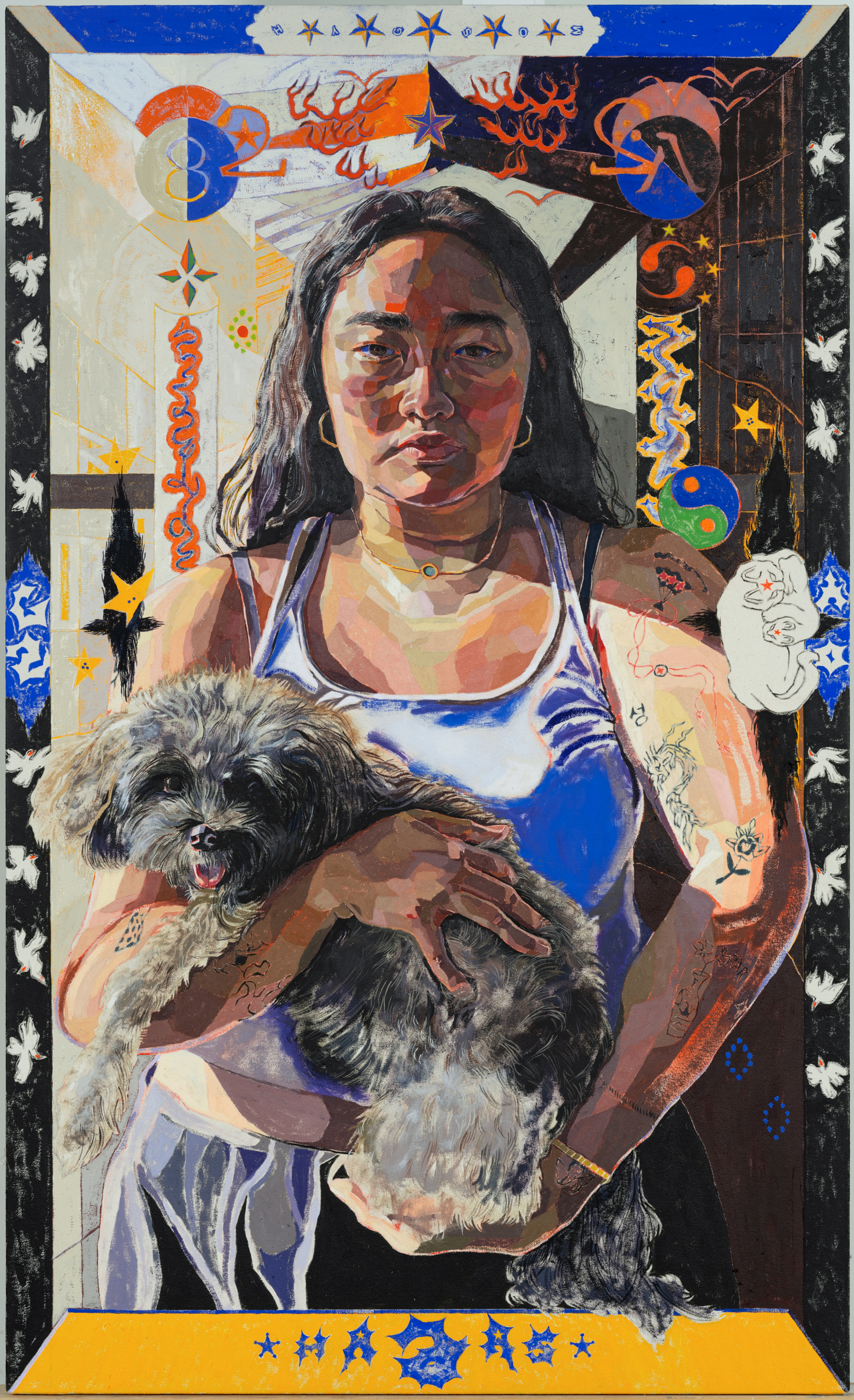
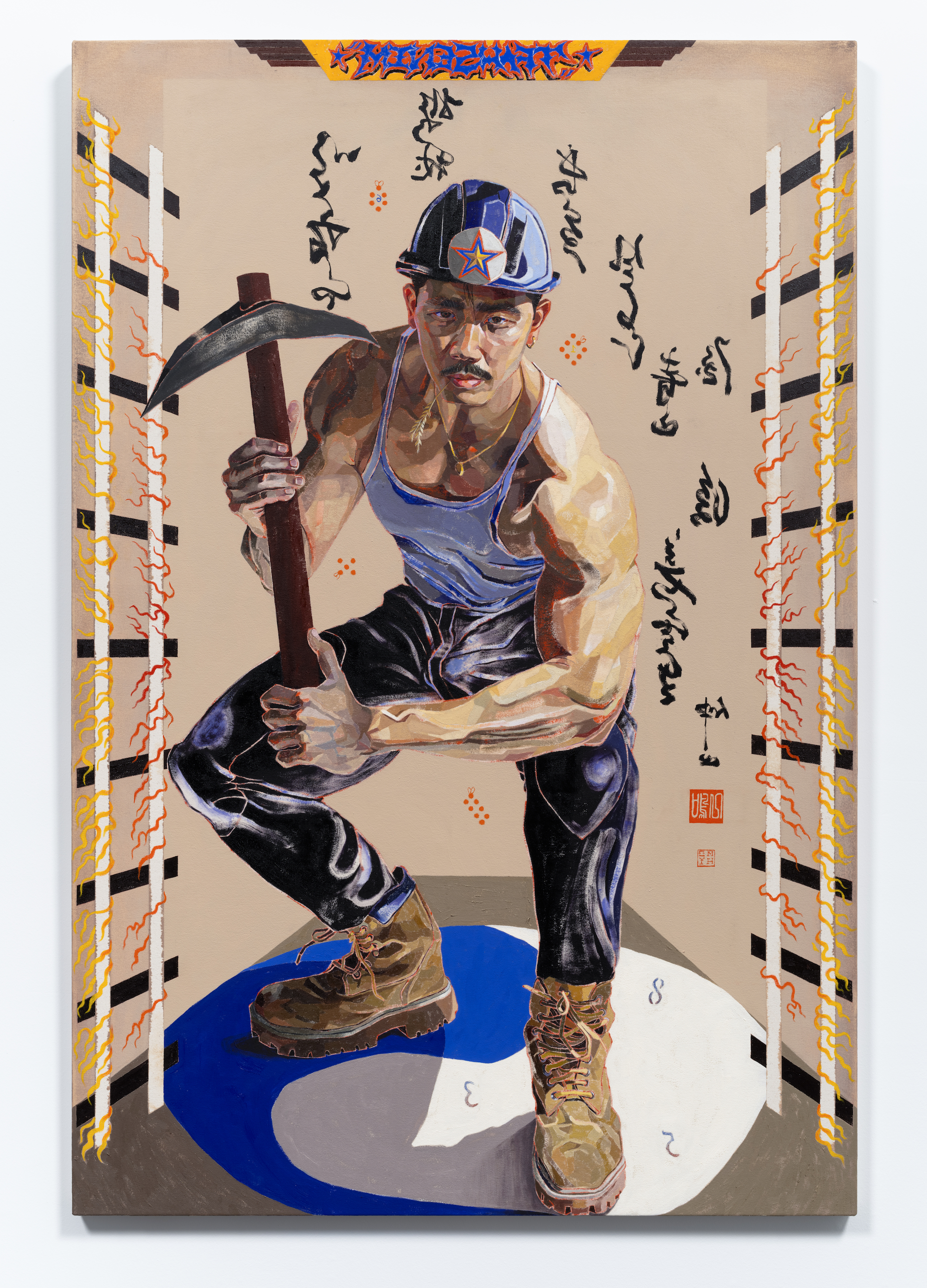
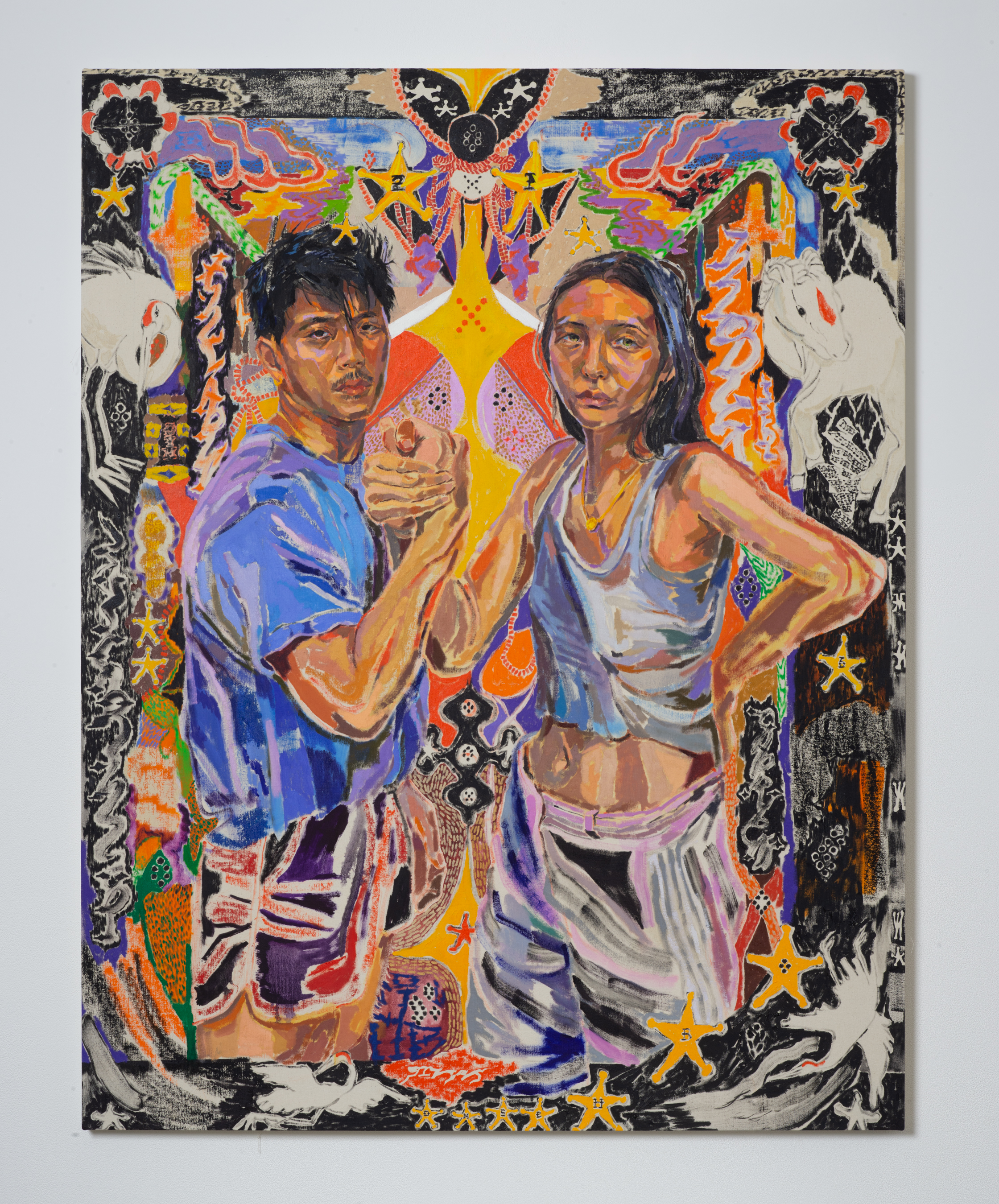
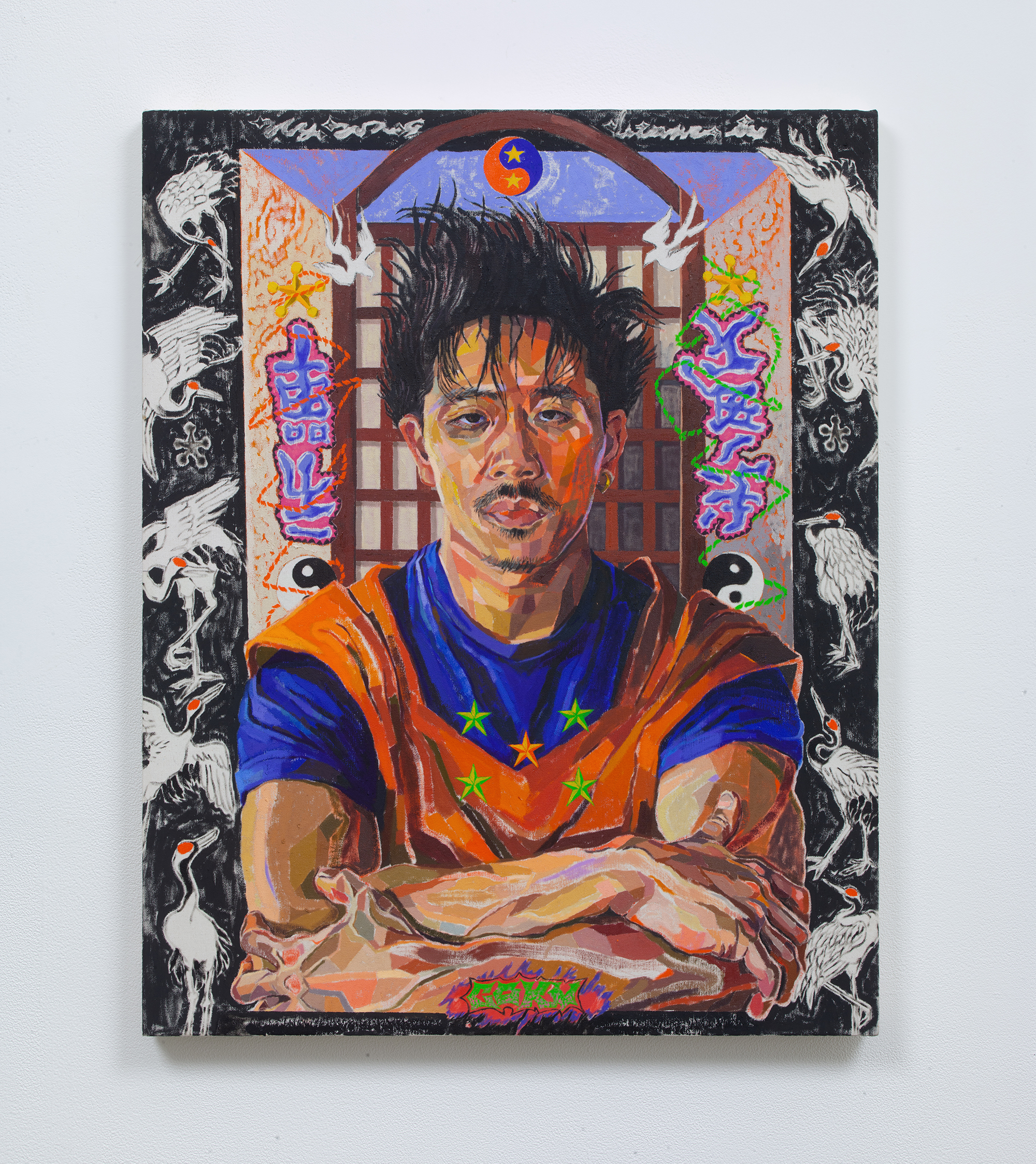
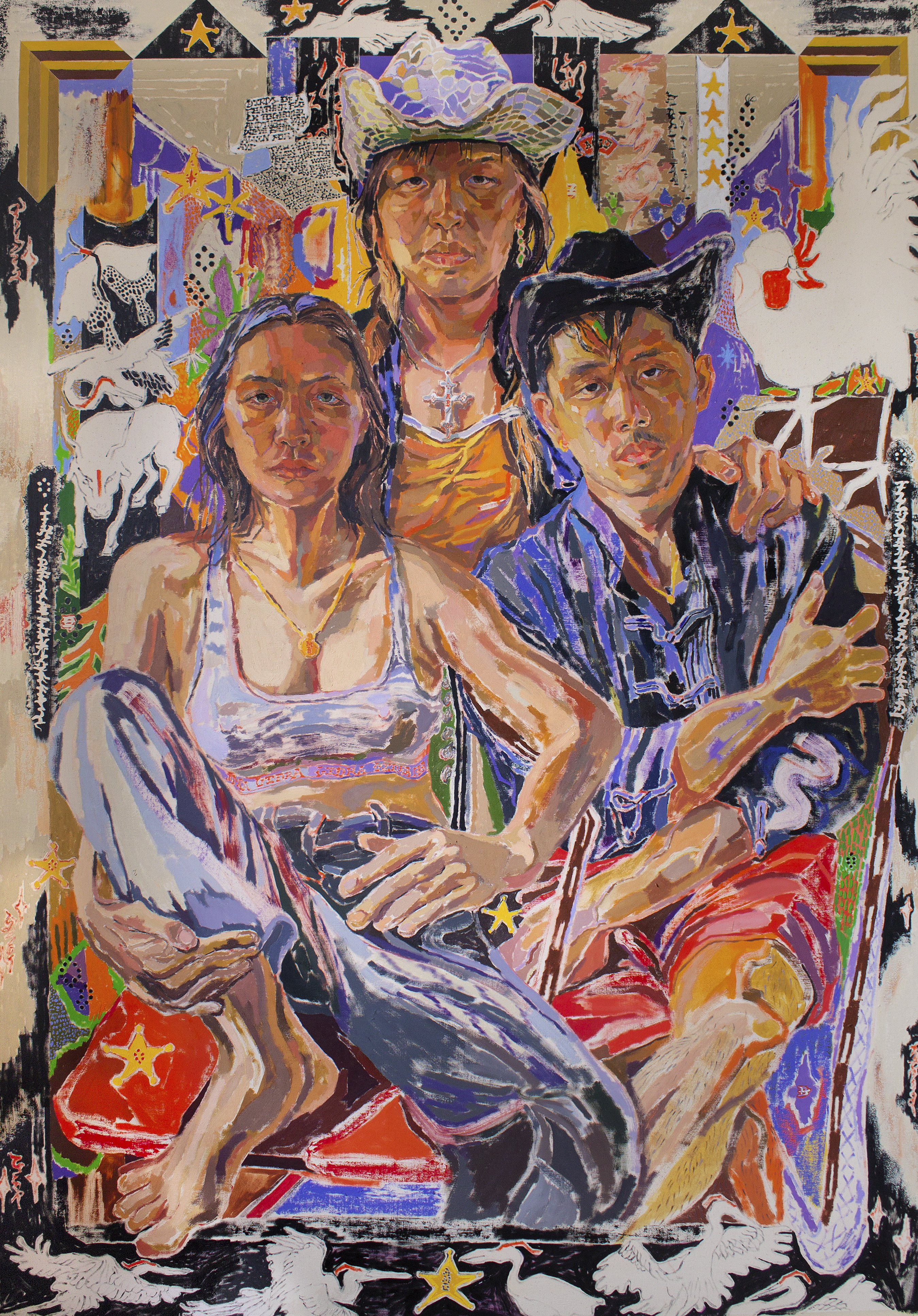
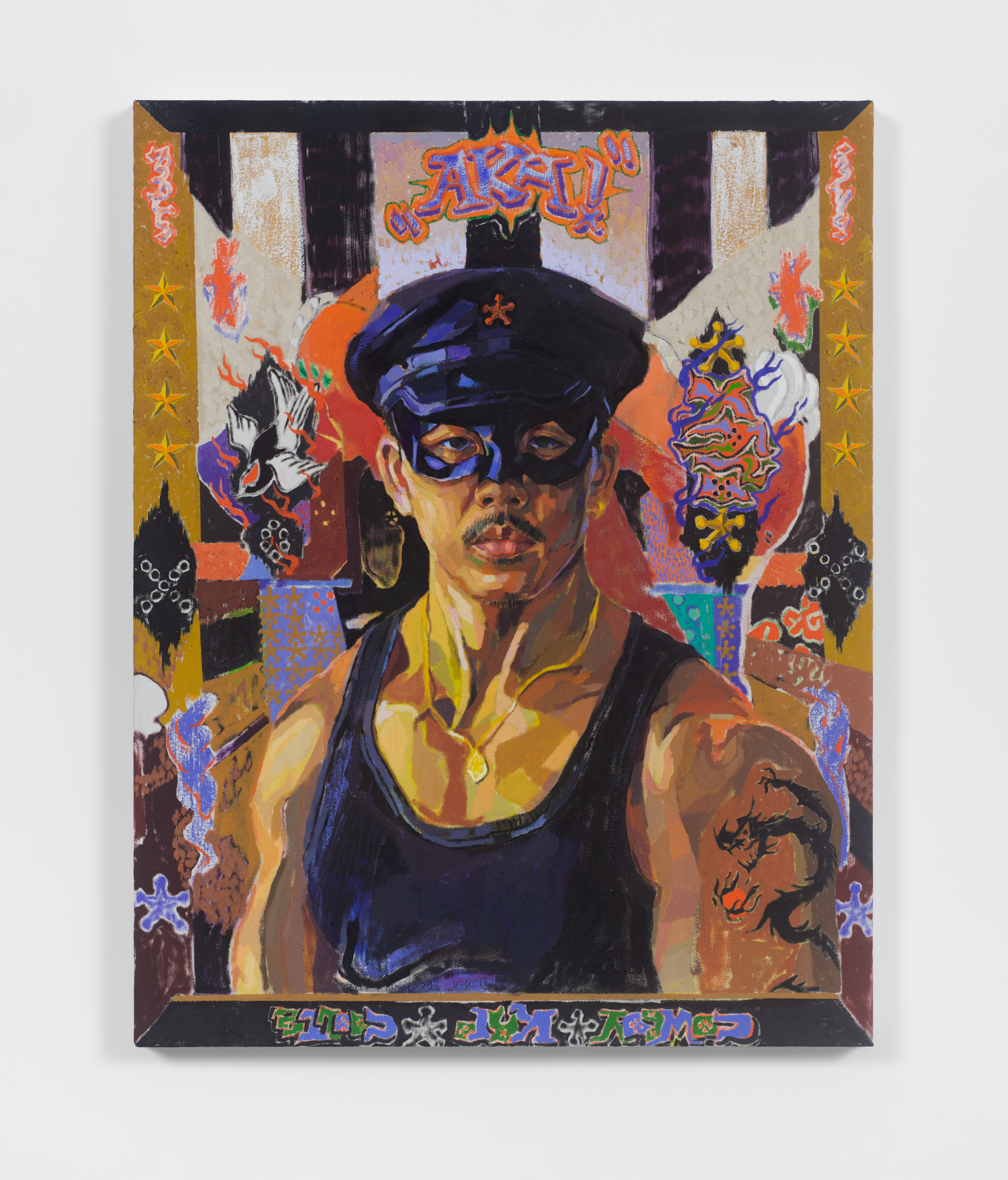







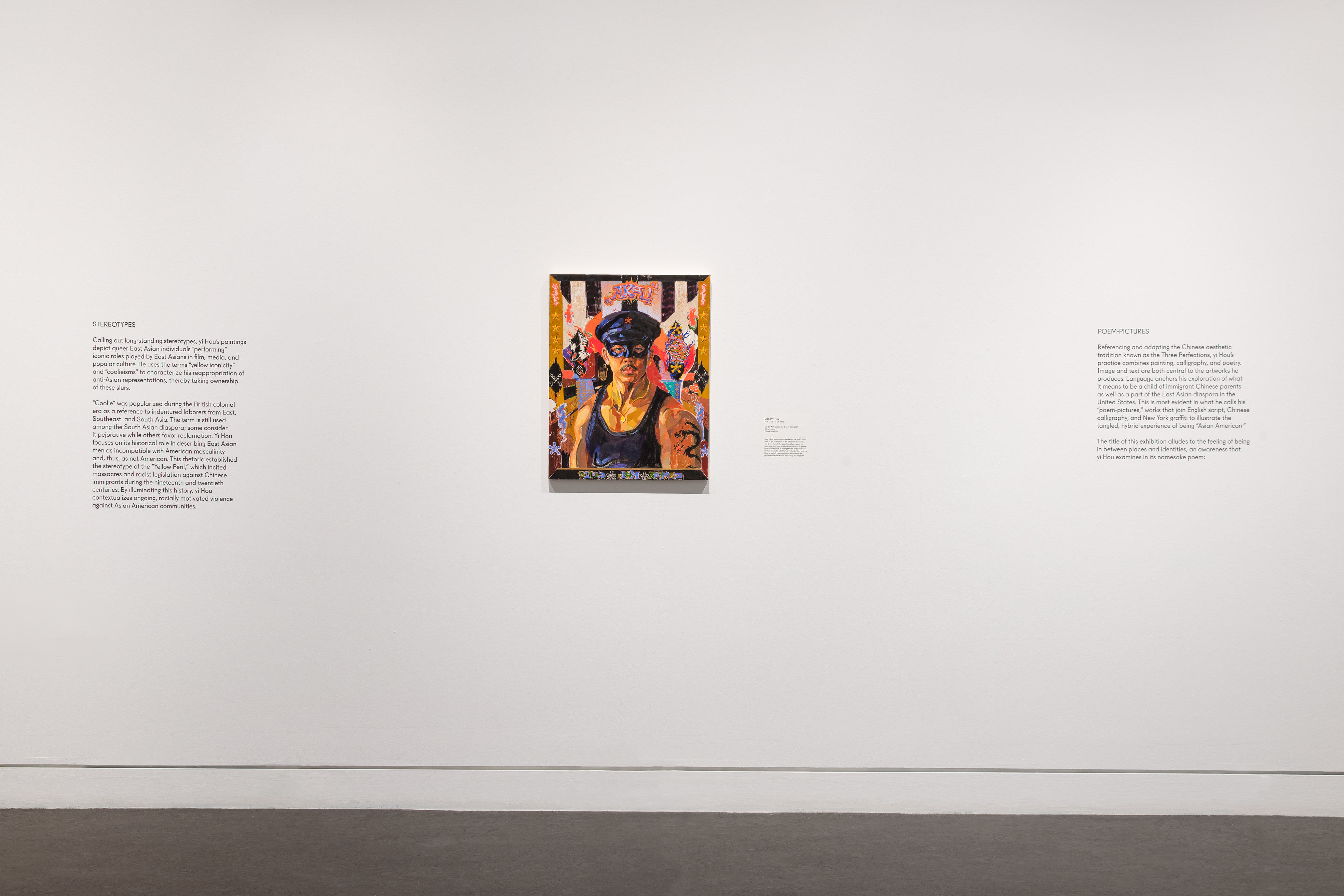
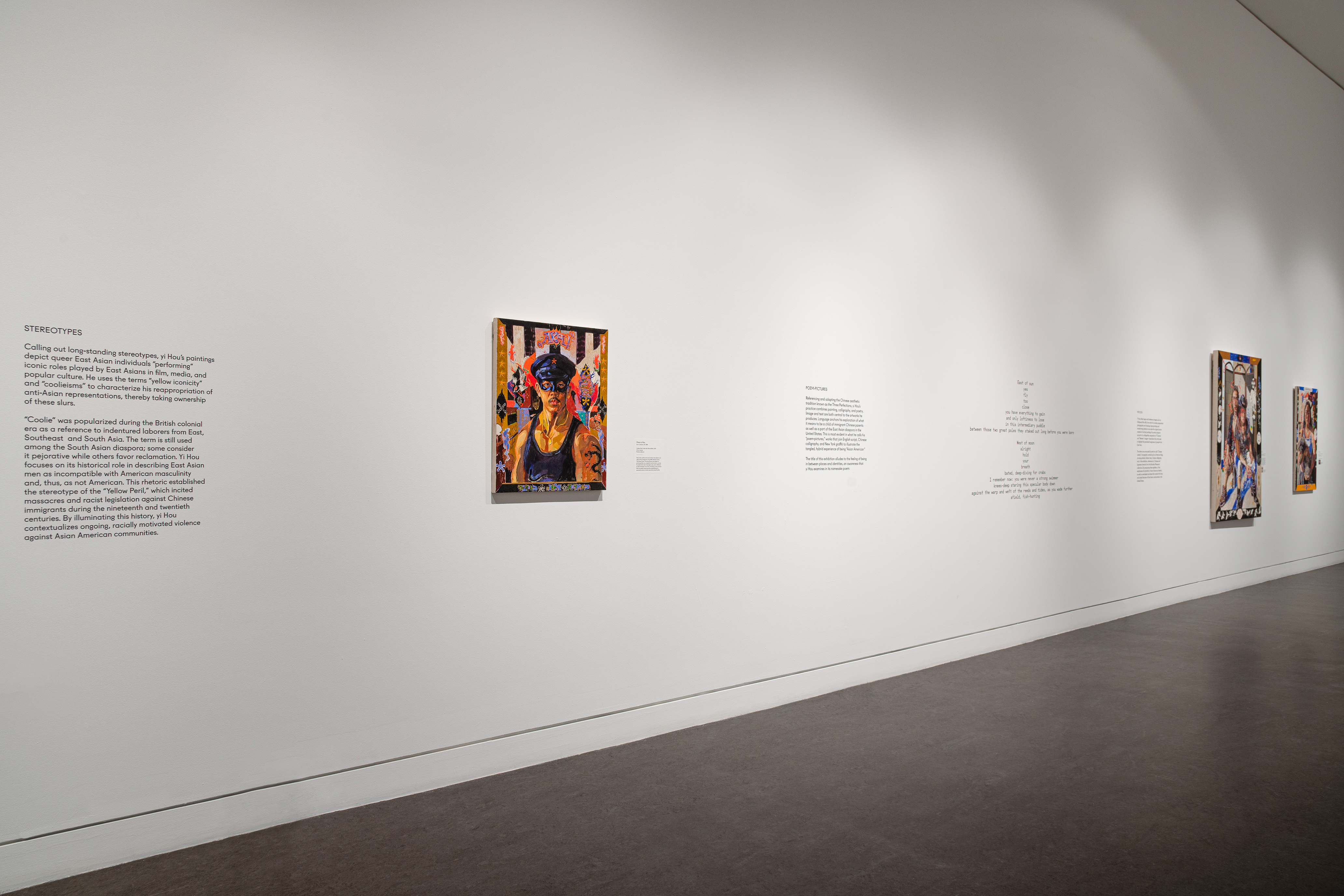


The Brooklyn Museum Presents
Oscar yi Hou: East of sun, west of moon
October 14, 2022 – September 17, 2023
The exhibition marks Oscar yi Hou’s first solo museum show and is presented as part of the Brooklyn Museum’s annual UOVO Prize for an emerging Brooklyn-based artist.
East of sun, west of moon is a timely, focused exhibition of new works by UOVO Prize– winner Oscar yi Hou, held during a period of heightened violence against Asian and LGBTQ+ communities across the United States. Composed of eleven recent paintings that primarily highlight queer Asian American subjects, the exhibition illuminates the intersectional identities of the artist and his friends. The show opens October 14, 2022, shortly after the reopening of the Brooklyn Museum’s Arts of Asia galleries on September 30. Several of yi Hou’s latest paintings incorporate visual references to objects from the Asian Art collections.
“I’m thrilled that the Brooklyn Museum is hosting the first solo museum exhibition of work by Oscar yi Hou, an extremely smart and talented young artist based in the borough,” says Eugenie Tsai, John and Barbara Vogelstein Senior Curator, Contemporary Art, Brooklyn Museum. “Simultaneously sensuous and conceptual, his paintings, often of friends from his circle of queer East Asian diasporic artists, encapsulate long-standing biases against East Asian and LGBTQ+ communities in the United States. In the current sociopolitical climate, with increased violence against Asian American and queer individuals, this show could not be more timely.”
In February 2022, yi Hou was announced as the winner of the third UOVO Prize, an annual award given to an emerging Brooklyn artist to encourage their practice and increase visibility of their work. The award entails a solo exhibition at the Brooklyn Museum, a 50-square-foot mural on the facade of UOVO’s facility in Bushwick, and a $25,000 unrestricted cash grant. The mural, titled Flock together, aka: a mural family portrait (2022), draws upon the artist’s painting birds of a feather flock together, aka: A New Family Portrait (2020) and is on view at UOVO through June 2023. East of sun, west of moon is on view through September 17, 2023, in the Brooklyn Museum’s fourth- floor Ingrassia Gallery.
The exhibition’s title frames the artist’s consideration of the in-betweenness of Asian American identity. Yi Hou’s portraits frequently depict subjects who, like him, are part of a creative community of queer, Asian, and diasporic artists. His paintings also often combine what he describes as “Oriental” and “Western” signifiers, including Chinese zodiac signs, Taoist symbols, cowboy hats, and American flags. Combined with the artist’s references to queer iconography, figurative painting, poetry, East Asian visual culture, and representations of East Asian figures in U.S. popular culture, these signifiers raise questions about who is considered “American” at this time of social unrest and political polarization. Concurrently, this imagery points to some of the limitations of the term “Asian American.”
Yi Hou’s working process often begins with a reference image, ranging from photographic artworks to Hollywood film stills. His new work Sayonara, Suzie Wongs, aka: Out the Opium Den (2022), for example, references the 1957 film Sayonara. He inserts his close friends into Marlon Brando’s role, a traditionally masculine, white American soldier, and Miiko Taka’s role, a hyperfeminine “geisha girl.” This strategy destabilizes the film’s heteronormative and stereotypical narrative. At almost seven feet tall, another new painting, titled Old Gloried Hole, aka: Ends of Empire (2022), takes the format of the American flag. For this work, yi Hou collaborated with the subject, a queer Filipino friend who recently became an American citizen, and embedded a poem within the flag’s stripes. The buried text, part of what yi Hou describes as a “poem-picture,” appropriates the welcome letter that the White House sends to newly naturalized citizens and alludes to U.S. imperialism in transpacific regions, questioning the notion of the “American ideal.”
The title of the artist’s Coolieisms series (2021–present) points to the denigrated status that Americans assigned to East Asian immigrants as early as the nineteenth century. “Coolie” is a slur originally used against migrant indentured laborers from East and South Asia in the British colonial era; it remains in use among the South Asian diaspora (some consider it pejorative while others favor reclamation). In North America, “coolie” was used specifically against Chinese immigrants during the rise of anti-Chinese sentiment in the late nineteenth century, which culminated in riots, massacres, and legislation such as the Chinese Exclusion Act of 1882. By illuminating this history, yi Hou contextualizes ongoing, racially motivated violence against Asian American communities.
By costuming his subjects, including himself, as historical East Asian figures, yi Hou employs American media and history to explore what he calls “yellow iconicity”— reclaiming another slur—as well as the perception of East Asian persons as fungible and identical. In works such as Coolieisms, aka: Leather Daddy’s Highbinder Odalisque (2022), yi Hou depicts a hypermasculine Chinese figure holding his queue, a long braid worn by Chinese male immigrants until the twentieth century, as a whip. Two other works, Coolieisms, aka: Sly Son Goku turns 23 and Cowboy Kato Coolie, aka: Bruce’s Bitch (both 2021), present self-portrait-like depictions of the artist dressed as Son Goku, the protagonist of the megahit manga and anime franchise Dragon Ball, and as Kato, a character played by Bruce Lee in the 1960s television show The Green Hornet. The Coolieisms series also references cult homoerotic artists such as Tom of Finland and Bob Mizer, complicating the long-standing American tendency to render Asian men as extrinsic to traditional masculinity and thus, as yi Hou suggests, to citizenry.
Oscar yi Hou: East of sun, west of moon is organized by Eugenie Tsai, John and Barbara Vogelstein Senior Curator, Contemporary Art, with Indira A. Abiskaroon, Curatorial Assistant, Modern and Contemporary Art, Brooklyn Museum.